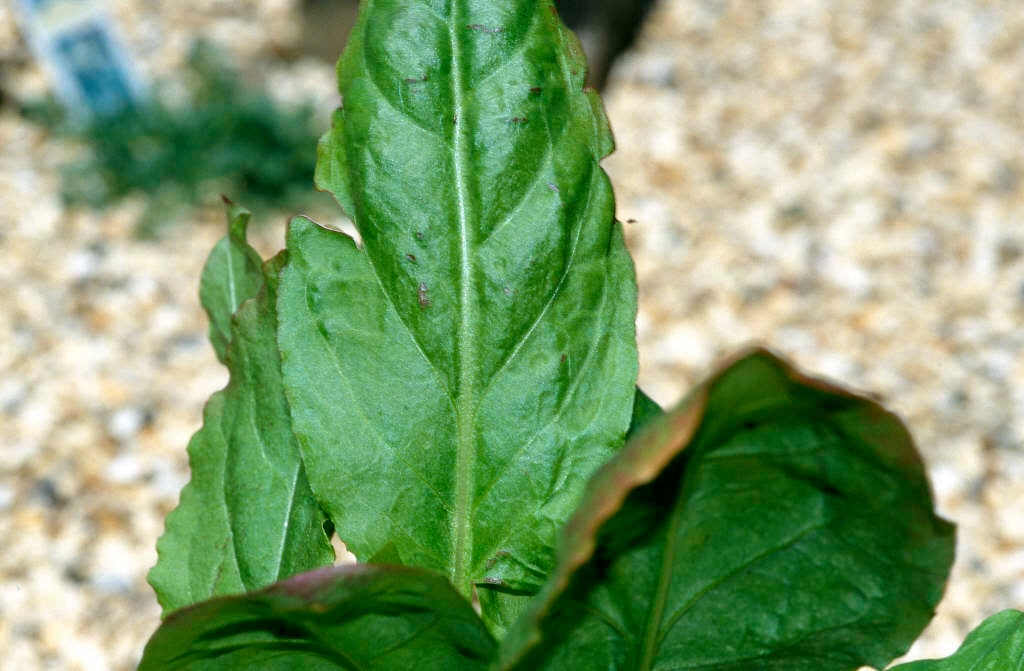Rumex acetosa
common sorrel
A hardy, clump-forming perennial herb with edible, sour-tasting, oblong leaves, arrow-shaped, 7-15cm long at the base. Small reddish flowers are produced in early summer in a narrow panicle or raceme up to 1.2m tall
Other common names
garden sorrelgreen sauce
see morepatriot's blood
sharp dock
sorrel dock
sour leek
sorrel
sour dock
sour grass
Synonyms
Rumex pseudo-acetosa
Buy this plant
Size
Ultimate height
0.5–1 metresTime to ultimate height
2–5 yearsUltimate spread
0–0.1 metreGrowing conditions
Moisture
Well–drainedpH
Acid, NeutralColour & scent
| Stem | Flower | Foliage | Fruit | |
| Spring | Green | |||
|---|---|---|---|---|
| Summer | Red | Green | ||
| Autumn | ||||
| Winter |
Position
- Full sun
- Partial shade
Aspect
West–facing or South–facing
Exposure
Exposed or Sheltered Hardiness
H7Botanical details
- Family
- Polygonaceae
- Native to GB / Ireland
- Yes
- Foliage
- Deciduous
- Habit
- Columnar upright
- Potentially harmful
- Harmful if eaten in large amounts. Wear gloves and other protective equipment when handling Pets: Harmful if eaten in large amounts - for further information and contact numbers regarding pets, see the HTA guide to potentially harmful plants
- Genus
Rumex can be annuals, biennials or perennials with mostly basal, simple leaves and erect panicles or racemes of small greenish or reddish flowers followed by reddish-brown, triangular fruits
- Name status
Correct
- Plant range
- N Temperate Arctic Regions
How to grow
Cultivation
Grow in any well-drained soil, in full sun. The plant self-seeds and deep tap roots may be difficult to eradicate or control. Young leaves can be eaten raw or added to salads, or boiled similar to spinach to accompany meals. See sorrel cultivation for more advice
Propagation
Propagate by seed
Suggested planting locations and garden types
- Cottage and informal garden
- Wildlife gardens
- Wildflower meadow
Pruning
Cut back after flowering. Cut back prior to seed setting to avoid self-seeding
Pests
Diseases
Generally disease-free
Love gardening
Sign up to receive regular gardening tips, inspiration, offers and more
View our Privacy Policy
Get involved
The Royal Horticultural Society is the UK’s leading gardening charity. We aim to enrich everyone’s life through plants, and make the UK a greener and more beautiful place.